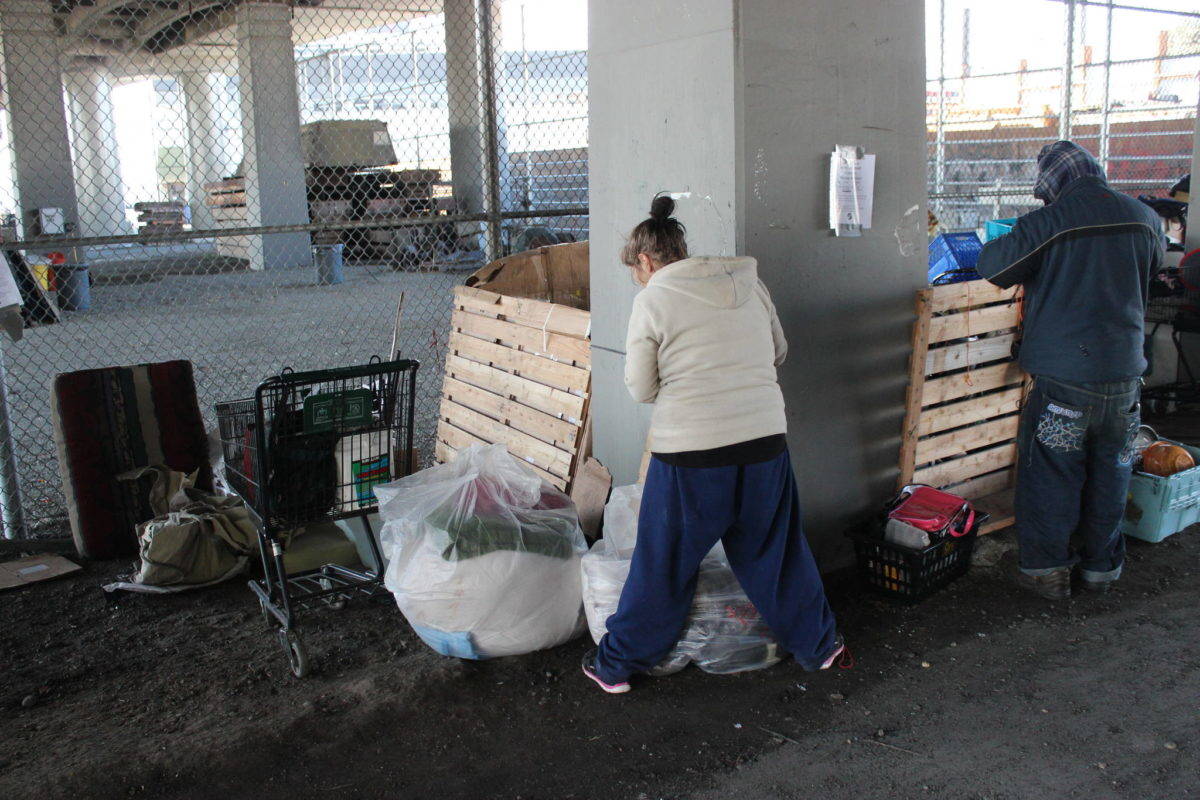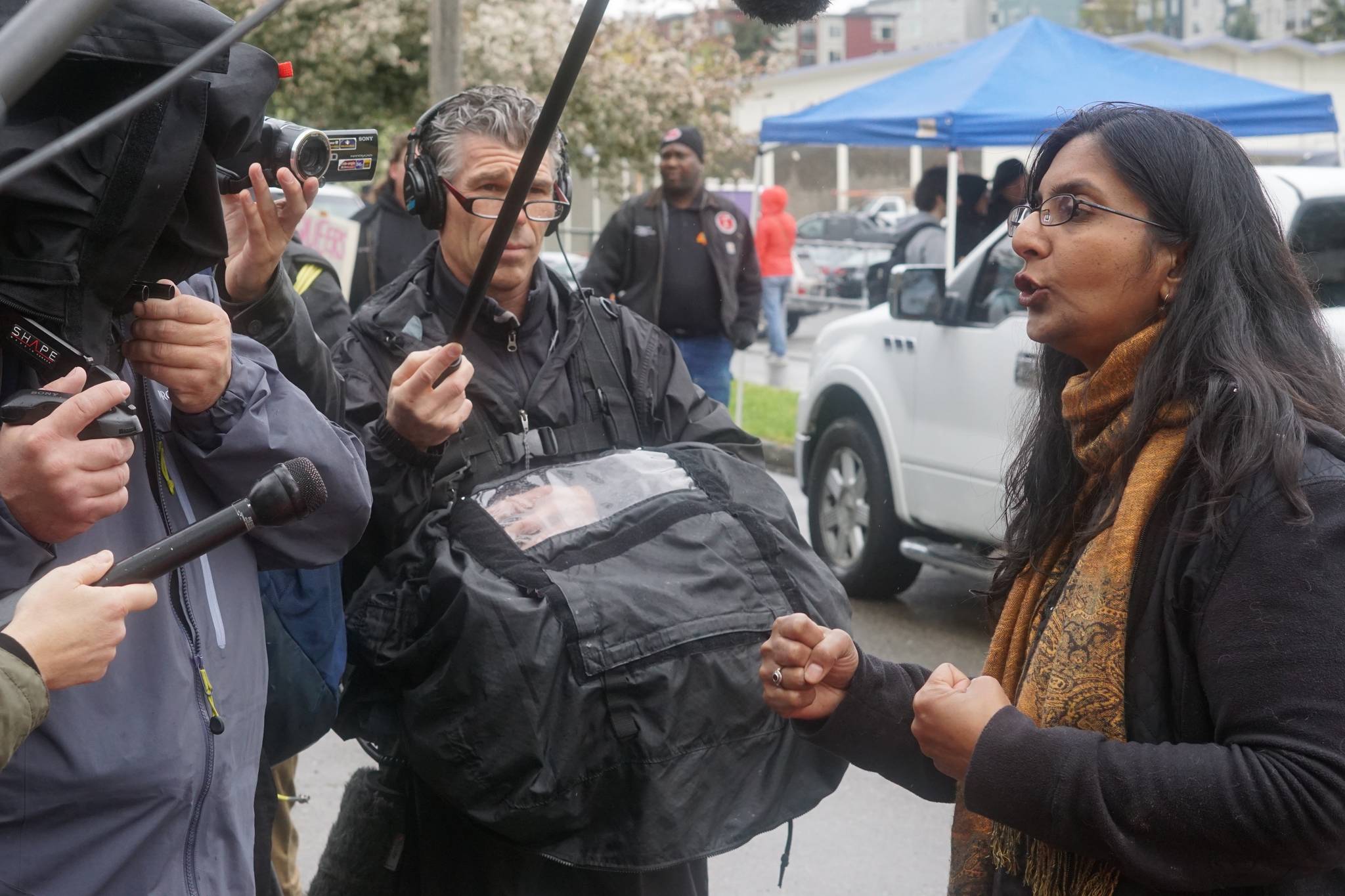Seattle media united together Wednesday to put a spotlight on the homelessness epidemic facing our city. As many outlets pointed out, there are more than 11,000 people facing homelessness in just King County alone, the annual One Night Count for this year found.
That count found a 21 percent hike in Seattle homelessness compared to last year. It also found that 92 percent of those asked said they would move into “safe and affordable housing” if it was offered. The problem remains that there isn’t enough housing that people can afford.
At the Weekly, we focused on the issue of rapid rehousing, an effort to relocate people facing homeless into stable housing by helping them cover rent at market rate apartments. Through this method, the city gives people rent money and limited counseling to help them cover the cost of market-rate housing. But, is it sustainable with Seattle’s exponential growth of rents?
The Seattle Times illuminated other issues facing the program. Many people looking to reap the benefits of rapid rehousing find themselves at the mercy of problematic rental or personal histories and skeptical, unwilling landlords. According to the Times’ article, enrollees of local rapid rehousing programs, spent on average roughly 100 days looking for housing. On the bright side, Crosscut—which coordinated #SEAhomeless (good job, Crosscut!)—profiled one landlord who is happy to rent to those who recently experienced homelessness. For her, it’s personal.
Rapid rehousing wasn’t the only solution explored. For housing, there are ideas like the BLOCK project, which aims to put a 109 square foot home in the backyard of one single-family lot on every residentially zoned block within the City of Seattle. A new 24 hour shelter that, once completed, will have 100 dormitory-style beds, storage spaces, and services to help people find jobs and permanent homes will hopefully provide housing for 300 to 400 people per year.
These ideas provide hope, but when implemented, they provide tangible results that could help assuage the number of unsheltered (5,548 people!) on the streets.
Evidence of this is Mary’s Place in White Center, a shelter that opened at the end of March and that the West Seattle blog profiled on Wednesday. As the only full time shelter in the White Center and West Seattle area, it is currently housing 15 families (55 people) and it still has room for more. (The shelter’s capacity is 70). “I think the biggest kind of joy and surprise has been the way the community has surrounded the space … we saw that in the work group and the process to get in. That has not waned. Between the schools and organizations already in the neighborhood,” Liz McDaniel of Mary’s Place said of their experience opening a new shelter in West Seattle.
And Curbed Seattle looked back at 13 years of Recovery Cafe, which provides resources and community to those experiencing mental health issues, addiction, and homelessness. “We have people that have lost in such traumatic ways that without the support of community there’s no hope of rebuilding the life that they want to live,” founding director Killian Noe told the site. “The reality is that’s true of every one of us when we’ve suffered trauma and we’ve lost life as we knew it. None of us can put that together by ourselves.”
Many of the #seahomeless articles sought to give the homeless a voice.
The Evergrey displayed the work of Claire Justice, a homeless poet. “It is my predicament you deeply fear,” Justice writes about passerby avert their eyes from her.
Tobias Coughlin-Bogue painted a poignant and rousing picture of how “many of us cannot accept the simple, fundamental truth that homeless people are still people.”
The Seattle PI shed light on the struggles families in these situations face. Because for homeless families, “the challenges go beyond food and shelter. Children need to get to school, get help with homework, have the chance to make friends and play.”
There is no definitive answer or fast track to solving this problem. But there seems to be progress on the horizon.
Geek Wire looked at the tech industry’s efforts to be part of the solution, as many blame it for the problem due to the surge of rents and newcomers its bringing on. Paul Allen, co-founder of Microsoft, and Jeff Bezos, founder and CEO of Amazon, are at the helm with benevolent donations and promises of new infrastructure just for those in need.
Resolutely, homelessness is a city-wide issue. People from all walks of life, female veterans to an average college student, are experiencing homelessness all over Seattle.
As one person told KUOW, “it’s not far-fetched for anyone to be homeless.”








